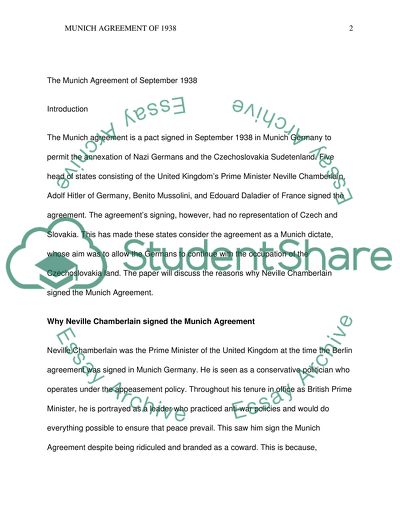Cite this document
(“The Munich Agreement of September 1938 Essay Example | Topics and Well Written Essays - 2000 words”, n.d.)
The Munich Agreement of September 1938 Essay Example | Topics and Well Written Essays - 2000 words. Retrieved from https://studentshare.org/history/1441729-discuss-why-neville-chamberlain-signed-the-munich
The Munich Agreement of September 1938 Essay Example | Topics and Well Written Essays - 2000 words. Retrieved from https://studentshare.org/history/1441729-discuss-why-neville-chamberlain-signed-the-munich
(The Munich Agreement of September 1938 Essay Example | Topics and Well Written Essays - 2000 Words)
The Munich Agreement of September 1938 Essay Example | Topics and Well Written Essays - 2000 Words. https://studentshare.org/history/1441729-discuss-why-neville-chamberlain-signed-the-munich.
The Munich Agreement of September 1938 Essay Example | Topics and Well Written Essays - 2000 Words. https://studentshare.org/history/1441729-discuss-why-neville-chamberlain-signed-the-munich.
“The Munich Agreement of September 1938 Essay Example | Topics and Well Written Essays - 2000 Words”, n.d. https://studentshare.org/history/1441729-discuss-why-neville-chamberlain-signed-the-munich.


